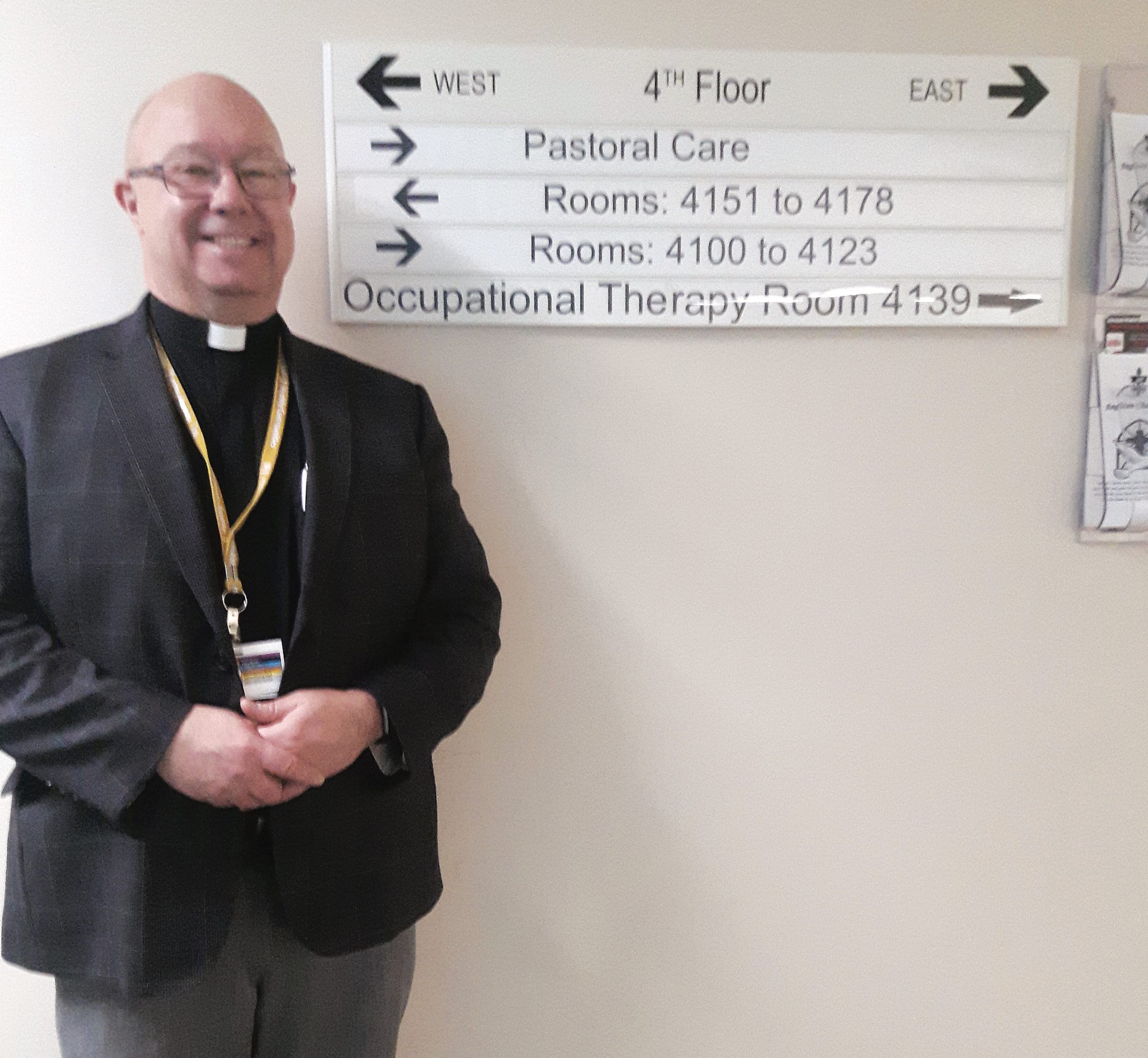The article, by the Rev’d David Pilling, will appear in the February print issue of Anglican Life:
In the Gospel of Luke we have examples of a Pastoral side of Jesus’ ministry. In one of the strongest images of pastoral care, some friends of a paralyzed man carry him to see Jesus. Because of the crowd, they climb atop of Peter’s roof, remove some of the thatching, and lower their friend down to see Jesus. In every sense of the word, it is the faith of the friends that brought about this encounter the paralyzed man had with Jesus. They saw their friend’s pain and sought a healing presence in his life, and they acted with compassion and deliberate actions.
Another such encounter takes place a few chapters on, in which a woman enters into Simon the Pharisee’s house. The woman does not say a word, rather she kneels down at Jesus feet, crying so that her tears wet his feet. She dries them with her hair, kisses and then anoints them. For her, Jesus created a space of hospitality where she would encounter God, and the unconditional love that lead to wholeness, in spite of the uncomfortable surroundings of Simon’s home.
Scripture is filled with examples of how God creates opportunities for His people to encounter Him, often in times of crisis or extreme discomfort. In our society, perhaps the most common such crisis we encounter, is when we are sick and in need of medical intervention. When people enter any hospital, they surrender a great deal of control over their own lives. It is a very stressful and vulnerable time for many. It can be almost as stressful to the family who visit and see their loved one so vulnerable. In many cases, even though death is not a likely outcome, patients can identify with Psalm 23, as they realize they are walking in the valley of the shadow.
most common such crisis we encounter, is when we are sick and in need of medical intervention. When people enter any hospital, they surrender a great deal of control over their own lives. It is a very stressful and vulnerable time for many. It can be almost as stressful to the family who visit and see their loved one so vulnerable. In many cases, even though death is not a likely outcome, patients can identify with Psalm 23, as they realize they are walking in the valley of the shadow.
As a chaplain, I am part of the “Circle of Care” that a patient receives. The hospital setting is unique within the province, in that some of the most highly educated people work together to create a community of healing. I witness some incredibly caring doctors, nurses, social workers, and therapists who offer their skills, and attention to those in need. I see how personally they take their vocation; how they rejoice when someone gets better, and how they grieve when someone dies. I watch as they extend themselves in attempting to offer comfort at a very uncomfortable time in people’s lives.
I visit all Anglicans who have identified that they wish to receive Pastoral Care. Like Jesus did with the woman who went into Simon’s home, I attempt to create, during my visit, a space of hospitality where each person may encounter God through our conversation and prayers, on their own terms. The hospitality I speak of is simply creating a safe space where conversation will take place. Hospitality is not meant to change people, but to offer a place where emotions and thoughts can be openly and safely discussed. Hospitality is the full extent of Jesus’ command to love our neighbour as we love ourselves.
In my previous 33 years of ministry as a parish priest, I would have attempted to create hospitality in each of the home visits I did or to extend it to each visitor who came to see me. It was simply an extension of my faith and prayer journey. The same is true in a hospital setting, except it is learning to ignore the complex machinery connected to many patients or to find quiet in the midst of a busy, busy room. Like Jesus did with the woman who visited him at Simon’s home, I attempt to create a space where God may be encountered, prayers may be said, emotions may be discussed and, in many instances, Holy Communion and/or the Sacrament of Anointing may take place. As chaplain I am a very visible presence of Christ within a place of healing, which is humbling, and I daily thank God for this opportunity.
One of the lessons I have learned is the importance of taking time to engage people in conversation. I am fortunate to have seen two of my role models, Canon John Courage and Sister Betty Morrissey, doing this in their ministry. We never know where God is opening a door for an encounter to take place.
A number of years ago, when I was about to have surgery, my surgeon came up to me in the pre-surgery room and asked if he could have a prayer with me—I have never forgotten this request. It is an honour to be present with anyone going for surgery. As chaplains we are only too pleased to offer prayers for each person, praying that God’s healing presence will be seen and felt through the surgical team and that each patient will know that the God who loves us has them in the palm of His hands.
When possible, and only at the patient’s request, I let the patient’s rector know of their stay in hospital. This notification is made usually with the assumption that their rector will pray for them while in hospital, possibly visit them and that there will a follow-up upon their return home.
I am truly pleased to be part of a team ministry, both as Anglican chaplains and the larger chaplaincy team working in Eastern Health. I am grateful for the insights gained from Canon Ed Keeping, and appreciate the unique insights he has to this shared ministry.


